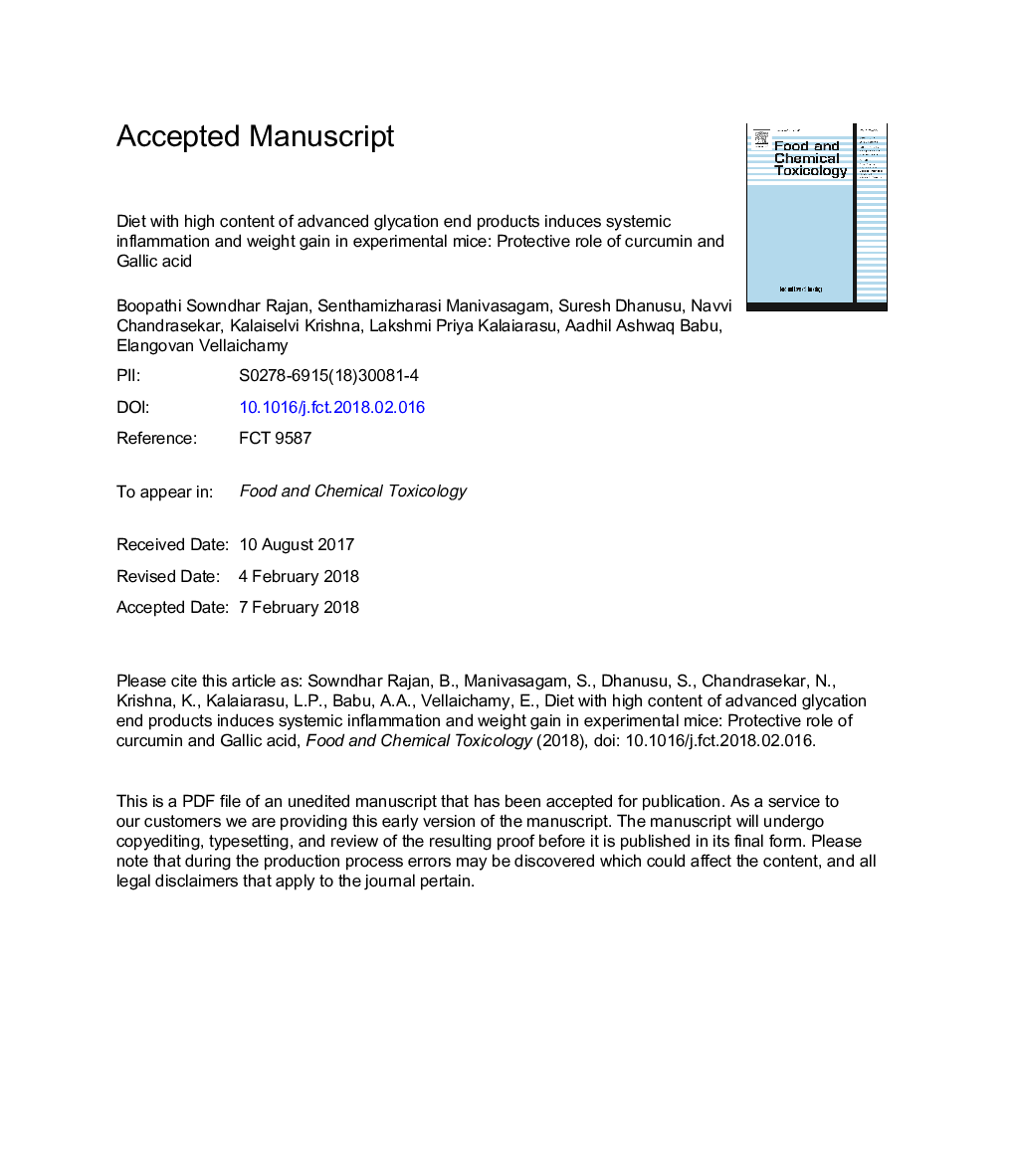| Article ID | Journal | Published Year | Pages | File Type |
|---|---|---|---|---|
| 8547815 | Food and Chemical Toxicology | 2018 | 32 Pages |
Abstract
The present study was aimed to investigate the effect of diet derived AGEs (dAGEs) on the circulatory levels of pro-inflammatory cytokines, chemokines and to evaluate the protective efficacy of natural anti-oxidants curcumin (CU) and gallic acid (GA) respectively against the dAGEs-induced systemic inflammation in experimental Swiss albino mice. The experimental mice were fed with dAGEs in the presence and absence of CU and GA for 6 months. The levels of 40 circulatory pro-inflammatory cytokines and chemokines were evaluated using Proteome-Cytokine Array kit. In addition, serum levels of N-ÉCML, CRP and HbA1c were estimated by ELISA method. Among the sixteen pro- and anti-inflammatory cytokines analysed, five (IL-16, IL-1α, ICAM, TIMP-1 and C5a) were found to be highly expressed (3.5-fold) and eleven cytokines were moderately expressed (2-fold) in dAGEs fed mice. In case of chemokines, three (BLC, SDF-1 and MCP-1) were found to be highly expressed (4-fold) and ten showed moderate expression (2-fold) as compared with basal diet fed mice. Interestingly, CU or GA co-treatment normalized the levels of circulatory pro- and anti-inflammatory cytokines, chemokines, N-ÉCML, CRP and HbA1c levels. Together, the present study suggests that dAGEs are positively associated with the development of systemic inflammation in experimental mice.
Related Topics
Life Sciences
Agricultural and Biological Sciences
Food Science
Authors
Boopathi Sowndhar Rajan, Senthamizharasi Manivasagam, Suresh Dhanusu, Navvi Chandrasekar, Kalaiselvi Krishna, Lakshmi Priya Kalaiarasu, Aadhil Ashwaq Babu, Elangovan Vellaichamy,
